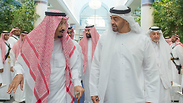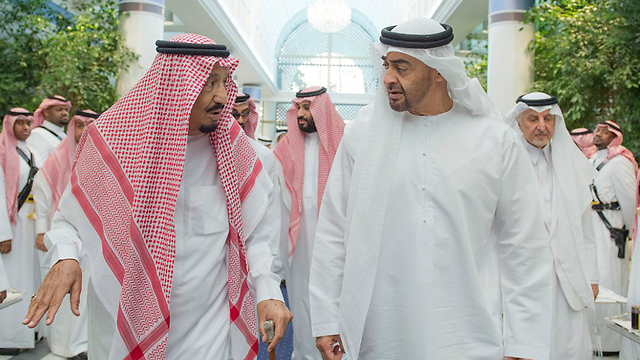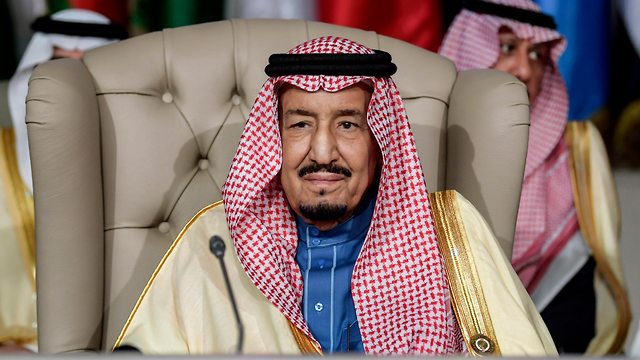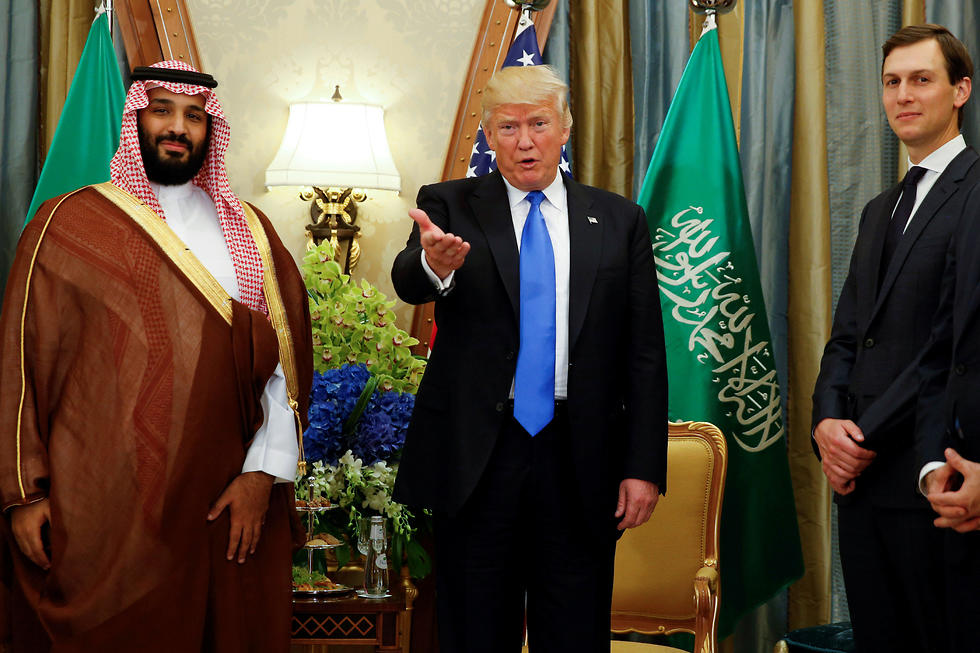
Saudi King Salman and Mohammed bin Zayed, Crown Prince of Abu Dhabi
צילום: AP
Arab world summit reveals end of unity facade
Analysis: Trump's peace plan brought Muslim and Arab politicians together, but while they all agree that a Palestinian state is a must, they don't seem to be prepared to do much to make it a reality
Something unusual happened in Saudi Arabia during the weekend. Three international summits convened, one after the other. All took place in the holy city of Mecca, right in the middle of Ramadan month.
The first summit included representatives from all 57 Muslim countries; the second, only of the 22 countries belonging to the Arab league; and in the third, only representatives of the seven United Arab Emirates.
Entrance was for Muslims only, as those who are not followers of the prophet Muhammed cannot enter Mecca. But despite these restrictions, Trump's advisors and Israeli officials were in the know of things from afar.
The strong man who dominated all three meeting was Sheikh Mohammed bin Zayed Al Nahyan, Deputy Supreme Commander of the UAE's Armed Forces and Crown Prince of Abu Dhabi, who despises Iran and its Ayatollahs regime.
If the matter was in the hands of Saudi King Salman, or his heir Mohammed, all three summits would have only discussed one matter — the Iranian danger. They did manage to put the Islamic Revolutionary Guard Corps on the agenda, as well as Iran's involvement in Yamen. But the dominant topic, in both open and secret discussions, was the Israeli Palestinian conflict.
Palestinian President Mahmoud Abbas was there, alongside King Abdullah, ruler of Jordan, who reluctantly participated. The latter allowed Abbas to lead the discussion on Palestinian affairs.
Finally, the conclusion was one: There will never be a solution to the Israeli-Palestinian conflict without an independent Palestinian state, with east Jerusalem as its capital, with or without Trump's "deal of the century."
Easy to say, of course. But will all these countries back Abbas? And what is their solution to the Gaza Strip issue? They mentioned no such solution.
Sheikh Mohammed bin Zayed, for instance, prefers talking to Mohammad Dahlan, former leader of Fatah in Gaza, who lives in Abu Dhabi and is a wealthy businessman. But his old dream of becoming the leader of "greater Palestine" is still alive. He keeps his contacts, both hidden and in the open, in the West Bank, and his fortune make its way into Gaza's refugee camps.
These three summits are only a preparation for the Bahrain economic workshop later this month, which is supposed to buy time for "the deal of the century to be realized. But the Gulf rulers are now facing an unexpected mishap: the repeat elections in Israel, to be held in September.
While the Saudi royal house believes that Prime Minister Benjamin Netanyahu will win the second round of elections, bin Zayed and Dahlan are not so sure. All eyes are now focused on Israel to see how the election results reflects on the plan.
One thing is certain, however. There is no longer an "Arab World," and the fake expressions of unity are long gone. These summits reveal the divisions more than anything else, and they demonstrate how Arab rulers talk about a joint cause, but do little to achieve it.
Each country has its reasons. Some are rich, some are mid-range, some are poor. All have some history with Israel. Some maintain stable ties to this day, like Jordan and Egypt, while some pushed back over the years.
Israel draws a lot of fire from the Arab world, but it none the less fascinates them. Like children, they come near and then run far, only to come back again. One day we'll know more about what went on behind the scenes last weekend, and how it shaped the future of Mideast politics.













